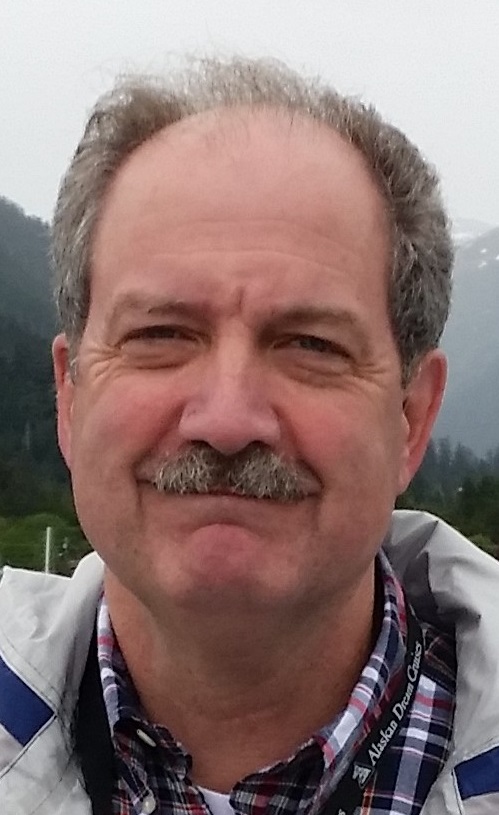Member of the Month - August 2018

Meet August's ASNE Member of the Month - RADM Clarke Orzalli, USN (Ret.)! Read on to learn a bit more about RADM Orzalli in his interview with Membership Manager Michelle.
Michelle: What got you into Naval Engineering? (What specific event or moment).
RADM Orzalli: When I was 12 years old, I decided I wanted to join the Navy. My father was a Submarine Commanding Officer at the time and I was impressed with the great people he got to work with. I remember my science project that year was building a model of a Nuclear Power Plant based on information I could find in some books we had at home. The pumps were made of life savers and the piping systems were made out of drinking straws. I decided I wanted to go to the Naval Academy as a means to joining the Navy. I chose the Marine Engineering major at the Academy as I felt it would prepare me best for service in the Navy as we studied all propulsion systems including Steam, Gas Turbine, Diesel and Nuclear Power.
Michelle: What is a fun fact most people don't know about you?
RADM Orzalli: My voice changed when I was in grade school so I was asked not to sing in the school's holiday pageant, and even asked not to participate in the children's choir at church because my voice was not cherubic enough. Now my wife and I sing in the church choir and I enjoy the bass parts - the lower the better.
Michelle: What is one engineer/scientist/ or mathematician dead or alive would you like to meet?
RADM Orzalli: A couple of years ago, I taught an Introduction to Engineering course at Wentworth Institute of Technology in Boston to freshmen engineers. I required the students to read a biography of an engineer or scientist and give an oral presentation. I got to hear about many giants in the field through the eyes of new engineering students. It caused me to think about this question much differently - expanding my possible choices.
If given a choice of one to meet - I would have to say Marie Curie. She not only was the first woman to be awarded a Nobel Prize, but was the first to receive two, one in chemistry and one in physics. She was a pioneer in the nuclear field.
Michelle: If you could engineer your perfect concession stand/food truck, what would it be?
RADM Orzalli: I never considered this as a use for my engineering skills. I did take an operations analysis course where we tried to optimize the location of equipment in a fast food restaurant based on projected sales of specific items. I also did similar studies during LEAN green belt training. These had nothing to do with what was being served, just how to serve it. I understand this question to be what would my concession stand serve. Zoning and permitting restrictions aside, I have always thought that having an establishment that serves only single malt scotch would be lots of fun. I like the great variety in scotch and the complex nature of the taste sensations as well as understanding the historical and process intricacies. I also would like that I would have to travel to Scotland routinely on discovery and buying trips.
Michelle: Why are you a member of ASNE?
RADM Orzalli: ASNE has been a key element of my professional life. It is much more than a technical society. It provides me insight into developing technologies as well as process changes that I have been able to apply to what ever I was doing while in the Navy and since retirement. It also provides professional networking and friendships. I was a student member of ASNE when I was a midshipman at the Naval Academy and received the ASNE prize at graduation. I also was an Officer Representative for ASNE when I was a company officer. I allowed my membership to lapse when I was new construction engineer on USS Helena - I didn't have much time for much other than the job. I rejoined when a student at MIT and have been involved since. I have served as Chairman of the Tidewater Chapter and was elected to National Council for two terms. Now, I participate in events as both as a technical author or moderator for discussions. Geography limitations preclude me from attending routine section meetings like I have in the past.
I like the see that our industry continues to move forward. I feel it important that we bring in new ideas to challenge the norms of both technology and process. To do this we must focus on giving a voice to folks from educational institutions, industry and the Naval Services who are at all stages of their careers.
Michelle: What does "Naval Engineering" mean to you?
RADM Orzalli: When I received my degree as a Naval Engineer from MIT, I thought Naval Engineering was a narrow field that included Naval Architecture and Marine Engineering, but now I feel it is much more. Naval Engineering is clearly a discipline of Systems Engineering - and includes everything that impacts the life cycle of ships. It is technical and process, design and disposal, personnel and management, supply and logistics, planning and finance, and even government and politics to some degree . When looking at a system - it includes everything - and understanding the key relationships between all the contributions is essential to be successful. Too many times we optimize a system - only to find that we did not draw the boundaries large enough and have in fact sub-optimized causing a degradation of overall performance.